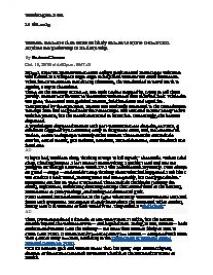Women are more than twice as likely as men to suffer from PTSD. Studies are underway to find out why.
In 1991, Karestan K. was a recent college graduate and Peace Corps volunteer who arrived in a village in Niger eager to help local women start small businesses. When her sister came to visit during Christmas, the two decided to travel north to Agadez, a city in the Sahara.
Geachte bezoeker,
De informatie die u nu opvraagt, kan door psychotraumanet niet aan u worden getoond. Dit kan verschillende redenen hebben,
waarvan (bescherming van het) auteursrecht de meeste voorkomende is. Wanneer het mogelijk is om u door te verwijzen naar de bron
van deze informatie, dan ziet u hier onder een link naar die plek.
Als er geen link staat, kunt u contact opnemen met de bibliotheek,
die u verder op weg kan helpen.
Met vriendelijke groet,
Het psychotraumanet-team.
In: Washington Post ISSN: 0190-8286
Online verschenen 19/10/2019


